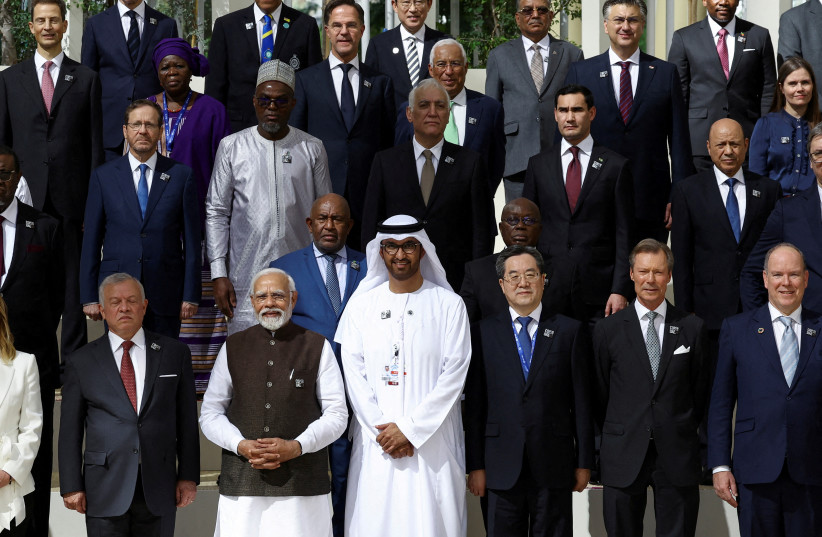The Abraham Accords Peace Institute (AAPI) released a new report on Wednesday highlighting three years of climate cooperation between Israel, the United Arab Emirates, Morocco and Bahrain.
The report, unveiled in the aftermath of the United Nations Climate Change Conference (COP28) highlights existing collaborations while emphasizing the critical need for cross-border climate cooperation, especially in the face of profound environmental and climate challenges, particularly in the Middle East.
"In light of the far-reaching challenges," the report contended, "coordinated efforts are more crucial than ever."
Asher Fredman, director of AAPI’s Israel desk, said climate tech has become a “sweet spot” for the Jewish state regarding the Abraham Accords because “what these countries are looking for is what Israel has to offer.”
"The UAE and Morocco are looking to make their countries more sustainable, and Israel is strong in climate tech, so there is a lot of synergy," according to Fredman, who also wrote the report.

He noted that there has been a pause in people-to-people cooperation in light of the Israel-Hamas war, although trade has remained steady between all countries.
"I think climate cooperation will continue because issues like food security, decarbonization of energy, and desalination are high on these countries' agenda," the director maintained. "In so far as Israel can offer solutions that are beneficial to them, I think it will continue."
What types of climate collaborations have been formalized?
As outlined in the report, notable agreements include a strategic alliance in water security between the Israeli firm Watergen and the Emirati company Al Dahra. This collaboration will introduce Watergen's groundbreaking water-from-air technology to the UAE and other regional nations.
Furthermore, Watergen, in conjunction with the Emirati company Baynunah and Tel Aviv University, aims to establish a collaborative Israeli-Emirati water research institute focused on enhancing drinking water quality, optimizing its sources, and advancing water and wastewater treatment technologies.
Mekorot inked a Memorandum of Understanding (MoU) with the National Office of Electricity and Drinking Water (ONEE) of the Kingdom of Morocco. This agreement establishes a collaborative framework for them to join forces in seawater desalination, facility management, and implementing cutting-edge technologies in Morocco across Africa and globally.
Additionally, Mekorot entered into an agreement aimed at advancing and enhancing the water economy of the Kingdom of Bahrain.
Within the food technology industry, four Israeli food tech startups have embarked on a project with Marrakesh-based Mohammed VI Polytechnic University (UM6P) to pioneer sustainable food solutions that circumvent the need for water, land, or energy. In partnership with Israeli startups, the university will pioneer the production of high-protein fish food derived from municipal organic waste, insects, and algae.
Simultaneously, DisruptAD, the venture capital arm of the Abu Dhabi sovereign fund ADQ, played a co-leading role in a substantial $105 million investment in Aleph Farms, an Israeli lab-grown cultivated meat startup.
Israel's International Center for the Study of Bird Migration is cooperating with Moroccan ornithologists on a project to use barn owls for sustainable pest control. Abu Dhabi's International Fund for Houbara Conservation signed a MoU with Israel's Nature and Parks Authority and the Nature and Heritage Foundation to conduct joint research projects on efforts to save the endangered Houbara desert fowl.
There are also several projects in the area of energy and sustainability.
The full report can be found on the AAPI website at https://www.aapeaceinstitute.org/.
Fredman said that in the future, large regional initiatives will help drive Abraham Accord cooperation, including in environmental and sustainability.
The Environment and Climate Change portal is produced in cooperation with the Goldman Sonnenfeldt School of Sustainability and Climate Change at Ben-Gurion University of the Negev. The Jerusalem Post maintains all editorial decisions related to the content.
